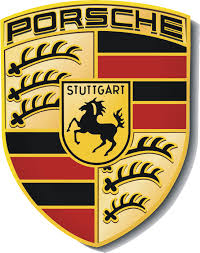911 Turbo AWD (996) F6-3.6L Turbo (2001)
/f6-3.6l_turbo/Page-1176089.png)
1. Connect and start the Porsche System Tester II No. 9588 and switch on the ignition.
2. Select '911 Turbo (996)' in the vehicle type menu and confirm with the ->| key.
3. Select 'PCM' in the control modules selection and confirm with the >> key.
4. Select 'PCM2/CDR23' in the control modules selection and confirm with the >> key.
5. Select 'PCM2-GW' in the PCM2 function selection and confirm with the >> key.
6. Select the "Identification" menu item and press the >> key.
7. The message "Diagnosis software number; PCM2. parts number" appears on the display
Actual Values
It is possible to read out the unlock counter under the 'Actual values' menu item.
Menu Item
Function
-
Unlock counter
Under this menu item, it is possible to check the electrical and optical MOST during troubleshooting.
-
Connect and start the Porsche System Tester II No. 9588 and switch on the ignition.
-
Connect and start the Porsche System Tester II No. 9588 and switch on the ignition.
-
Select '911 (996)' in the vehicle type menu and confirm with the ->| key.
-
Select 'PCM' in the control modules selection and confirm with the >> key.
-
Select 'PCM2/CDR23' in the control modules selection and confirm with the >> key.
-
Select 'PCM2-GW in the PCM2 function selection and confirm with the >> key.
-
Select the 'Actual values' menu item and press the >> key.
-
Select the "Unlock counter" menu item using the > key and press the >> key.
-
Read out values from the display field.
Lock/Unlock
A lock occurs when the signal sent from the MMI via the wake-up/diagnosis distribution line is understood and answered by the connected MOST
control modules; in this way a 'lock (connection)' is brought about. This is maintained until the signal is not received for a longer time 'unlock'.
Man Machine Interface (MMI)
The MMI is part of the PCM2 (on the main board) It runs the gateway commands via the wake-up signal line and the diagnosis of the distribution line.
MOST Actual Installations List/MOST Required Installations List
All MOST control modules that are connected to the PCM2 are entered in the 'required installations list'. An actual installations list is written and saved
when the PCM2 is started.
MOST - Optical/Electrical
MOST signals are transferred electrically within the PCM2CDR23 and optically outside of the PCM2/CDR23. Internally, the PCM2 consists of at least 2
nodes (GW and MMI), which are installed in the device and can also be expanded to four nodes by adding the navigation and VOCS nodes. Internally,
the CDR23 consists of one node (GW) which is installed in the CDR23.
The data is transferred outside of the PCM2 via the optical waveguide, which creates a connection to the nodes in the external MOST control modules
such as external amplifiers and/or telephone/telematics (depending on the equipment). The data is transferred outside of the CDR23 via the optical
waveguide, which creates a connection to the nodes in the external MOST control modules such as external amplifiers and/or CD changers (depending
on the equipment). The gateway node represents the connection to CAN Comfort.
MOST Switch
The MOST switch is part of the PCM2. It keeps the electrical MOST closed if no other MOST control module is optically connected to the MOST. The
MOST switch is opened when a light signal is received from the connected MOST control modules.
NOTE:
-
When the PCM2 is replaced, the coding must be performed in accordance with the connected MOST control modules.
-
When the 'Switch closed' parameter is set, the switch remains closed even in existing MOST control modules. Communication is then not possible.
Navigation
The navigation module is designed as a module box which can be pushed into the PCM2 (optional). After inserting, an electronic connector is
automatically opened and the module is integrated into the MOST ring.
Single CD
